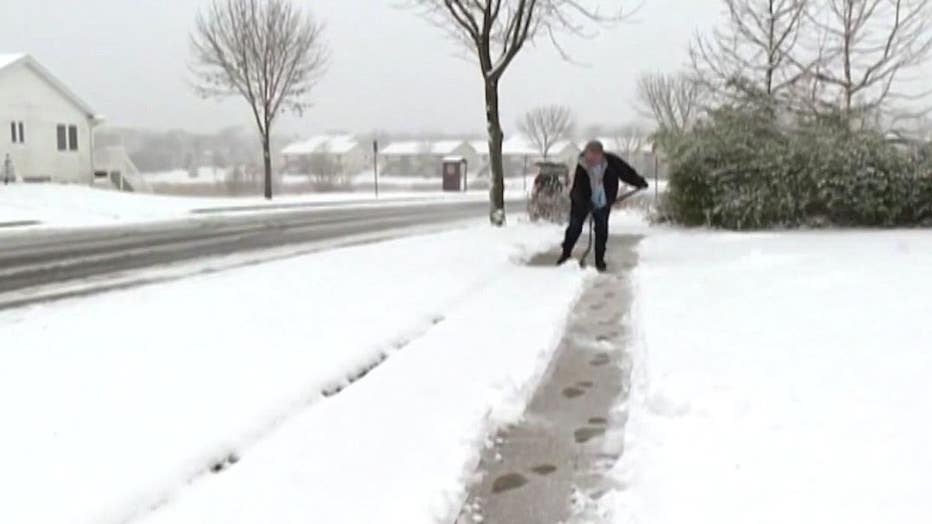Snow shoveling and heart attacks are linked, here is what you need to know
Snow shoveling can easily lead to heart attacks if you're not careful
What does 10 minutes of shoveling feel like to your body? Like you are moving a ton of snow - literally.
FOX 2 - We know that heart attacks spike after a snowstorm. In fact, a Canadian study found in men, the incidence of heart attack went up by 16% after a big snowfall.
They didn't study women, but by now we know that no matter who's holding the shovel, we all need to protect our hearts.
Big picture view:
What does 10 minutes of shoveling feel like to your body? Like you are moving a ton of snow - literally.
That stat comes from a new shoveling analysis led by Doctor Barry Franklin at Cornell Health. Franklin has been a leader in studying the risks of shoveling and says if you're sedentary, he's got many reasons for you to rethink it.
"Number one, it involves arm work, People don't realize it, but armwork is more taxing on the heart than legwork," he said. "Number two, when you're shoveling, you're oftentimes largely standing still. If you're walking on a treadmill, you're moving those legs and the blood comes back to the heart and the head. but if you're just standing still, blood tends to pool in the lower extremities. The heart's beating fast, and it's not getting enough blood and oxygen."
Franklin's analysis shows that heart rates during just 10 minutes of heavy snow shoveling exceed recommended exercise intensity limits. It's like you're running fast on a treadmill.
"Thirdly, you're straining. it's called isometric or static exertion," he said. "Fourthly, sometimes when you lift a heavy load, it's called a valsalva. Breath-holding causes big increases in heart rate and blood pressure."
In fact, following two heavy snow falls in Metro Detroit, researchers identified 36 sudden cardiac deaths during snow removal.
That's why you should push snow rather than lift it, and protect yourself from the cold.
"And lastly, the cold temperatures plus the wind chill factor, constricts blood vessels, raising blood pressure, constricting the coronary arteries which feed the heart muscle," Franklin said. "It's a perfect storm."
You've got to take a lot of breaks. The American Heart Association says if you have any signs of trouble, chest pain, pressure, lightheadedness, or heart palpitations, stop shoveling or stop snow blowing immediately.
And if those symptoms don't go away, you might want to call 911 and take it seriously.
The Source: Information for this story came from a Canadian health study on snow shoveling and the research of Corewell Health Dr. Barry Franklin.


